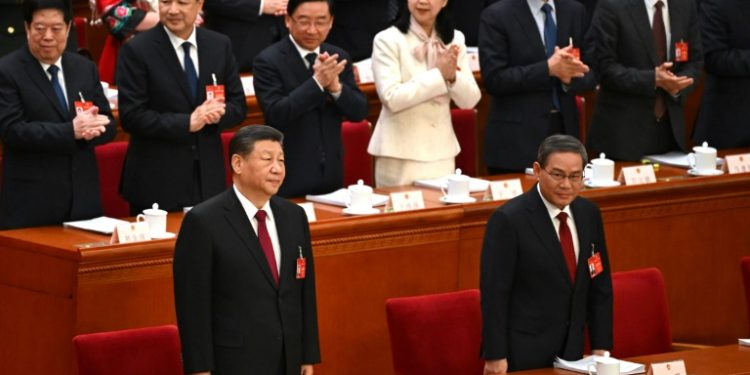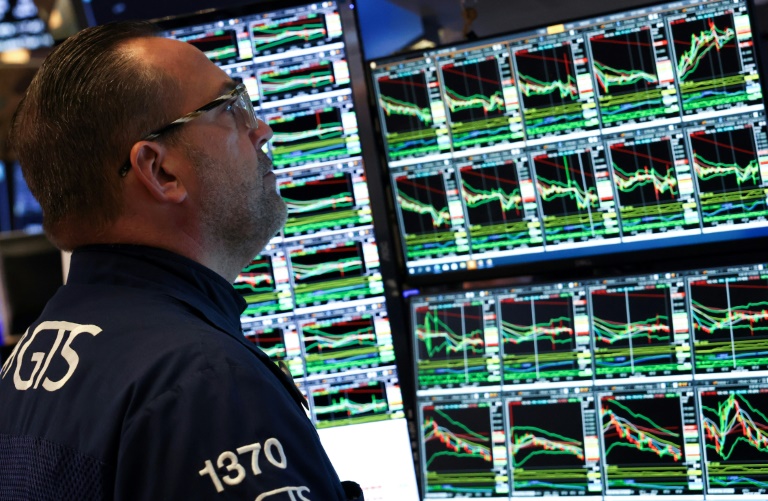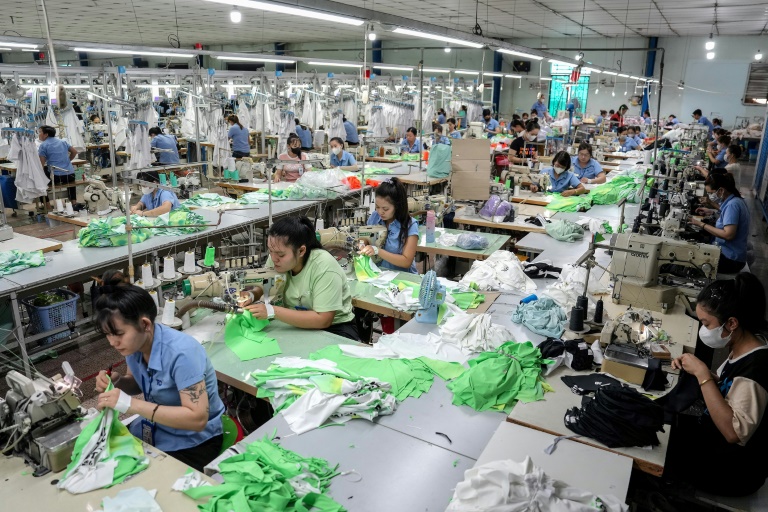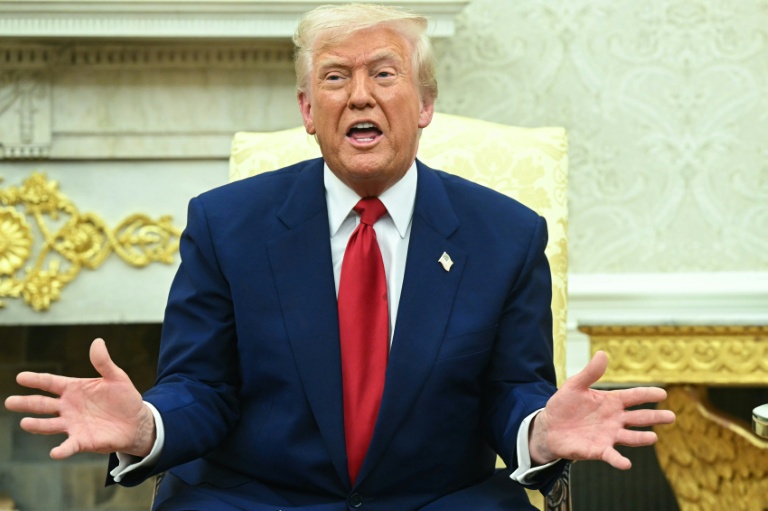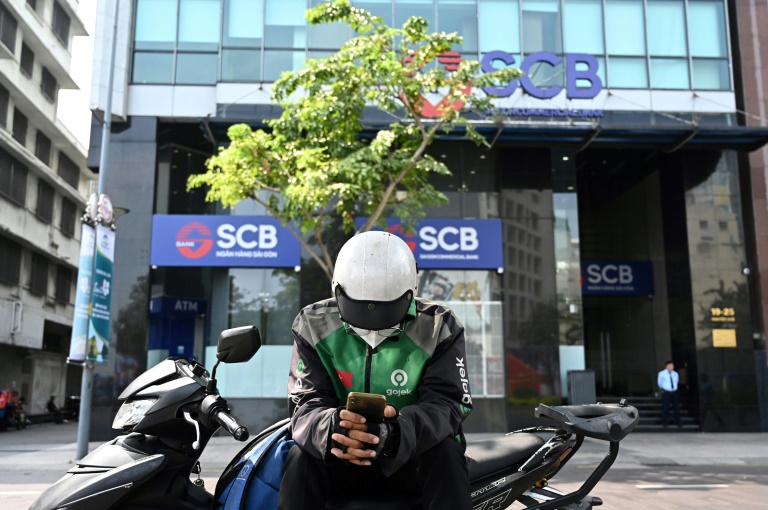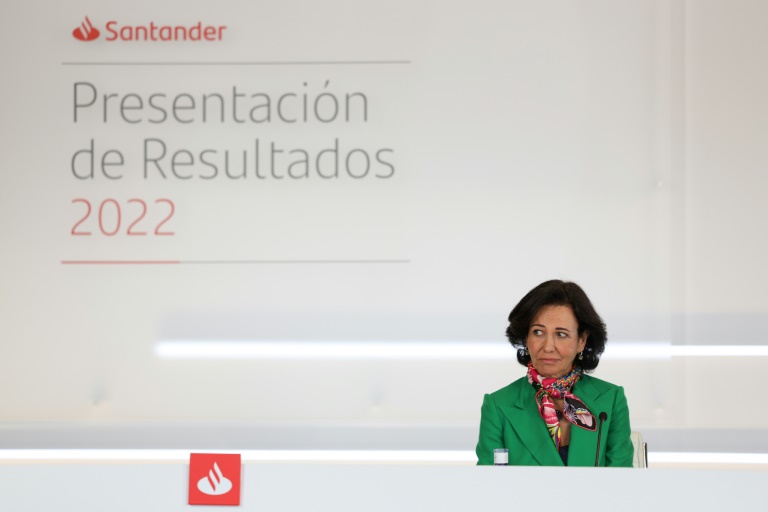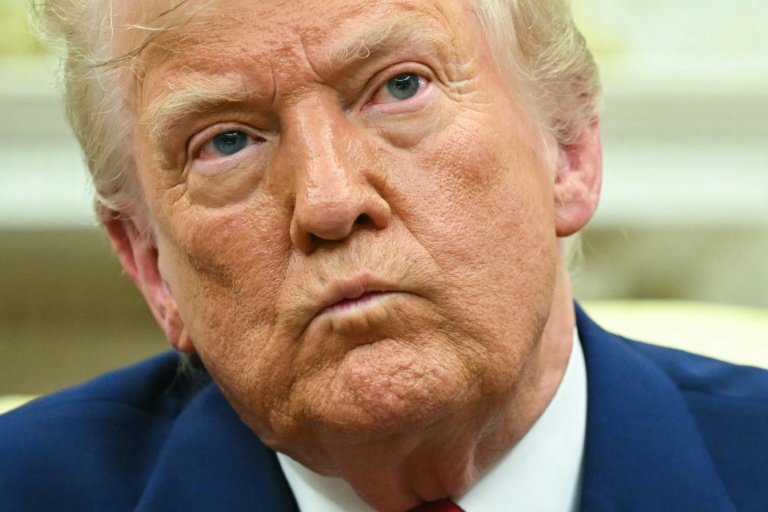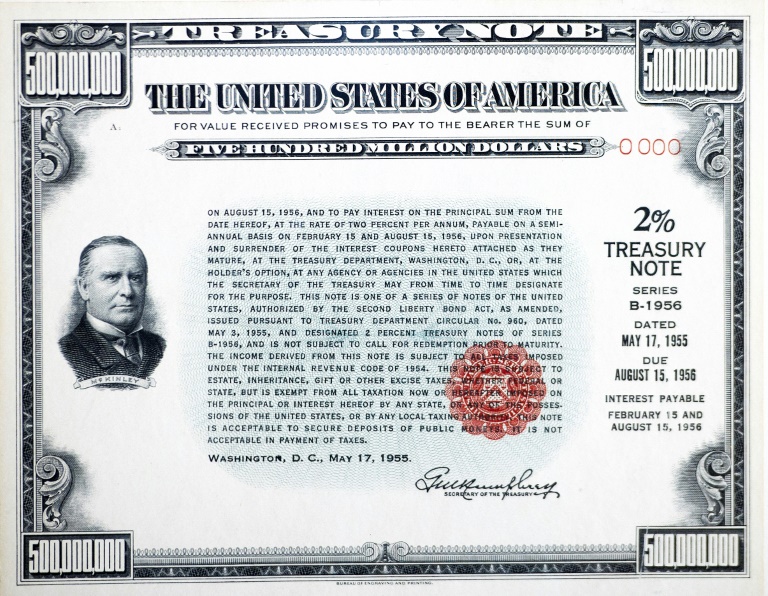Beijing (AFP) – China set on Tuesday a growth target of around five percent for 2024, an ambitious objective that the leaders of the world’s second-largest economy admitted would be a challenge to meet.
Premier Li Qiang formally announced the growth goal, alongside the overall budget and key government policies for 2024, as China’s annual National People’s Congress (NPC) kicked off Tuesday.
Addressing thousands of delegates, Li warned that “achieving this year’s targets will not be easy”.
“The foundation for China’s sustained economic recovery and growth is not solid enough,” he said.
Last year’s NPC saw President Xi Jinping anointed for a historic third term, cementing his rule as the most powerful Chinese leader since Mao Zedong.
A year on, thousands of delegates attending the gathering must grapple with a litany of economic and security challenges, including a protracted property sector crisis, soaring youth unemployment, and a global slowdown that has hammered demand for Chinese goods.
– ‘Risks and dangers’ –
The five percent goal is in line with last year’s growth, but is a far cry from the double-digit expansion that for years drove the Chinese economy.
“We do not consider the five percent growth target to be conservative, we actually think it is ambitious,” Wang Tao, Chief China Economist at UBS, told AFP.
“The property market has continued to fall and not yet reached the bottom, which exerts downward pressure on the economy,” she added, saying that would have a “negative impact on local government finance and spending, and household wealth and consumer spending”.
Li in his speech warned there remained “lingering risks and hidden dangers” still present in the economy.
Investors have called for much greater action from the state to shore up the flagging economy.
But Beijing has for years been reluctant to confront the pressures on its economy head-on with a major bailout, fearful of putting too much strain on fragile state coffers, and analysts don’t see any reason to think that will change soon.
A separate budget report indicated China’s military spending — second only to the United States’ — would rise by 7.2 percent.
China vowed to stand firm on Taiwan, which Beijing claims as its territory, promising to “resolutely oppose” any efforts towards securing the island’s independence.
– Investors spooked –
The island has long been a source of tensions with the United States, which is Taiwan’s primary supplier of arms.
Washington has also urged Beijing to do more to protect the rights of foreign investors in China, who were spooked last year by a number of raids on a string of big-name consulting, research and due diligence firms.
Beijing in recent months revised a law dramatically expanding its definition of espionage.
In the run-up to the NPC the legislature’s top body approved a broad and vaguely worded revision to China’s state secrets law — “a clear signal of security’s importance for this year’s governance agenda”, Diana Choyleva, chief economist at Enodo Economics, told AFP.
In a bid to assuage investors’ fears, Beijing on Tuesday promised to open “new channels” for foreign trade, as well as cut tariffs on advanced technology.
But deepening the sense of China as an information black hole, Beijing on Monday said it would scrap a post-NPC press conference by the premier — in place since 1993 and a rare chance for international media to quiz one of the country’s top officials.
– ‘Weather the storm’ –
Armed police and security personnel are ubiquitous on Beijing’s streets this week as thousands of delegates descend on the capital for the “Two Sessions” — a carefully choreographed week-long gathering of the NPC and Chinese People’s Political Consultative Conference (CPPCC).
Many of its major decisions would have been made weeks in advance, in closed-door meetings of the Communist Party.
Nevertheless, the topics that are up for discussion and the tone of the speeches allow for key insights into what’s keeping China’s rulers up at night.
“The NPC is not obsolete or irrelevant,” analyst Nis Grunberg told AFP.
“It is an important platform for the leadership to communicate its key priorities.”
The first of the “Two Sessions” began on Monday afternoon, and the almost 3,000-member NPC will hold daily sessions until March 11.
Sleet and cloudy skies left delegates shivering under umbrellas as they waited to enter Beijing’s Great Hall of the People on Tuesday morning.
A contingent of military delegates strode into the vast hall in dress uniforms, while representatives from ethnic minorities arrived in heavily embellished traditional garb.
And sporting legend Yao Ming, president of the Chinese Basketball Association, towered over fellow attendees on the steps outside, while others clutched umbrellas and donned raincoats in the wet weather.
© 2024 AFP

